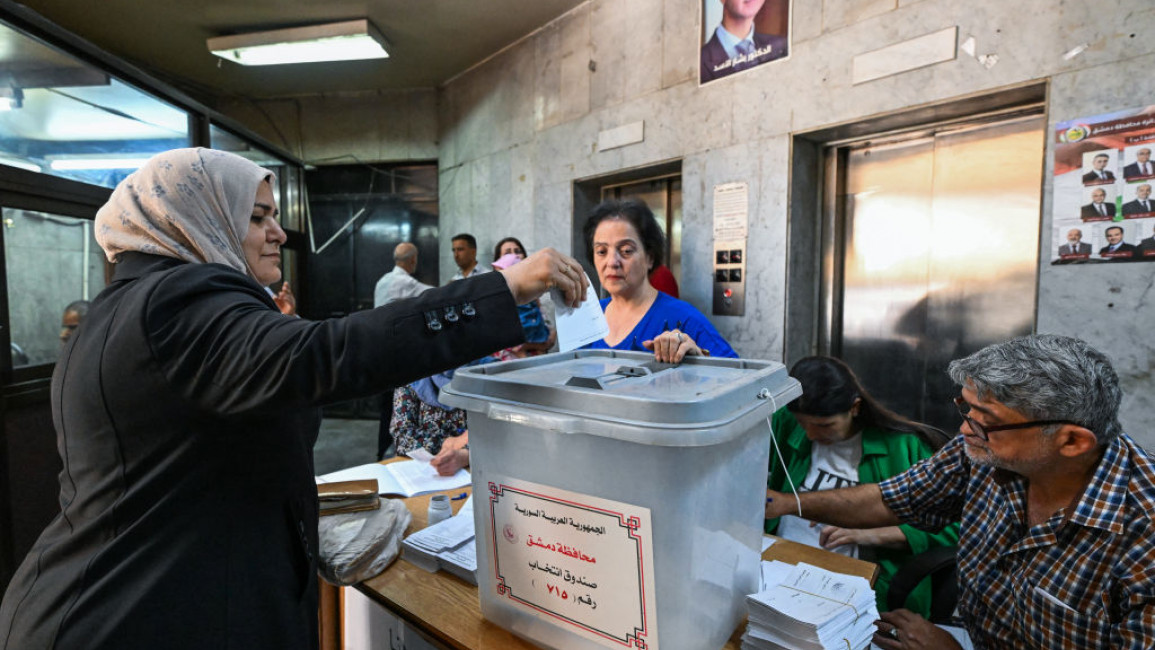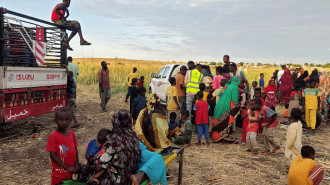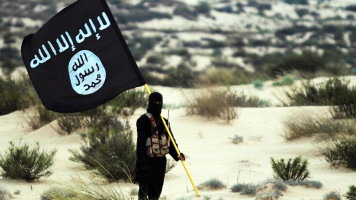Syrians living in regime-held territory vote in parliamentary elections
Syrians in regime-held areas were voting Monday in their fourth parliamentary election since civil war erupted in 2011, a poll expected to keep President Bashar al-Assad's ruling Baath party in power.
The Baath party - in power since 1963 - and its secular left-wing and Arab nationalist allies are running virtually unopposed, with independents the only alternative.
More than 1,500 people are standing for 250 seats in the largely rubber-stamp parliament, after some 7,400 candidates withdrew in recent days, according to Syria's Supreme Judicial Elections Committee.
"We have to take responsibility for electing good people and not repeating the mistakes of the past in voting for old names who can't change anything," said health ministry employee Bodoor Abu Ghazaleh, 49, among those voting at a polling station in Damascus.
Rania Deeb, a state electricity company employee, called the election "a real opportunity for citizens to express their views and choose representatives who can achieve change and the required reforms", amid long years of war and a gruelling economic crisis.
Protests in south
In Suweida province, the Syrian Observatory for Human Rights said demonstrators attacked polling stations in several areas.
Since 2020, protests against deteriorating economic conditions have erupted sporadically in Suweida, but the latest wave started in August after the government cut fuel subsidies, with demonstrators also demanding "the fall of the regime".
"Some protesters smashed or set fire to ballot boxes," said the Britain-based Observatory.
Footage posted by local news outlet Suwayda24 showed dozens of protesters in Suweida city, one holding a sign reading "Only the corrupt vote for the corrupt".
"There is no place for this ruling gang in Syrians' present and future. Enough, leave," another read.
Suwayda24 said one person was wounded after security forces shot "randomly" as a demonstration took place in the city, while a video taken elsewhere in the province showed people throwing ballots on the ground or tearing them up.
Syrian security services have a limited presence in the province, where Damascus has turned a blind eye to tens of thousands of Druze men refusing to undertake compulsory military service.
'Absurd'
Erdogan said this month he might invite Assad to Turkey "at any moment", in a sign of reconciliation after Ankara backed Syrian rebels seeking to topple the government.
Pro-Turkish forces now control swathes of Syria's northern border.
Assad said Monday that if a meeting with Erdogan "were to lead to results or... achieve the country's interests, I will do it".
But the problem "lies in the content of the meeting", he said, noting that "support for terrorism, and the withdrawal from Syrian territory" of Turkish troops were the "essence of the problem".
Assad also said Monday's election was different from previous votes.
"Today, we are in a transitional phase linked to visions about the role of the state and state institutions in general and policies," he told reporters, and parliament "must be part of this phase".
Under Syria's quota system, 127 seats are reserved for candidates who are workers or farmers, while the remaining 123 are open to other professions.
The Baath party is expected to secure most of the seats in the legislative ballot, which is held every four years.
With help from key allies Iran and Russia, Damascus has regained control of much of the territory it lost early in Syria's 13-year-old civil war, which began with the repression of anti-regime protests.
It spiralled into a complex conflict drawing in foreign armies and Islamist militants, and has killed more than 500,000 people and displaced millions.
In regime-held areas, Syrians aged 18 and over and holding an identity card are eligible to vote at some 8,150 polling stations.
Syrians living in the Kurdish-controlled northeast, in areas held by Ankara-backed rebels along the northern border with Turkey, and in the rebel-run Idlib bastion in the northwest are effectively disenfranchised.
Candidates are still vying for seats in those regions, but only voters living in regime-held areas can cast ballots at specially designated polling stations.
In the capital, posters were on display for candidates for Idlib and for Raqqa, a former bastion of Islamic State group militants now controlled by Kurdish-led authorities.
Polling stations are set to remain open until 7:00 pm (1600 GMT).
Millions of Syrians who have sought refuge abroad during the conflict also have no vote.
Syria's exiled opposition last week condemned the election as "absurd", saying that polls organised by the regime "only represent the ruling authority", in the absence of a political settlement to the conflict.
United Nations-backed attempts to reach a political settlement have repeatedly failed, and talks since 2019 on revising the country's constitution have also stalled.
This article has been updated to add recent comments by Turkish President Erdogan, Syrian President Assad and updates on protests in Suweida.







 Follow the Middle East's top stories in English at The New Arab on Google News
Follow the Middle East's top stories in English at The New Arab on Google News


![Beirut stadium [Getty]](/sites/default/files/styles/image_330x185/public/1235817272.jpeg?h=a5f2f23a&itok=0UZr2fIL)